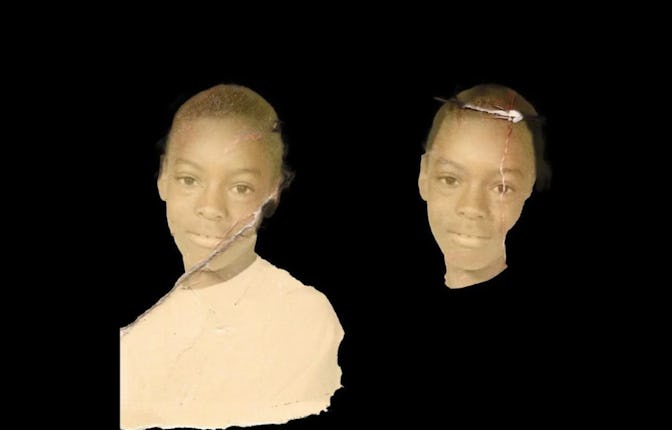Vince Staples finds quiet, meditative brilliance on Ramona Park Broke My Heart
The rapper’s second album in eight months successfully continues a slow shift in tone from the start of his career.

In 1996, toward the end of the sessions for his second album, It Was Written, Nas told DJ Premier he wanted a beat that sounded sad. He’d already sketched out the song idea in his head: He’d rap from the perspective of a gun that was handled, mistreated, and eventually abandoned by one of its owners, all while growing disgusted with the things it was made to do — and the arrogance of those who wielded it. The resulting record, “I Gave You Power,” is remarkable, its last verse wringing genuine pathos from an absurd conceit. In recording it, Nas made exactly one mistake. Before the first verse — already in character as the pistol — he says “It’s like I’m a motherfucking gun.” The Trackmasters, who executive produced It Was Written, begged him to take the line out, to trust the audience, to not overexplain. The writing (and Premier’s sorrowful track) proved engrossing enough to save “Power,” but Nas calling his shot in this way makes it scan as a formal exercise first, anything deeper than that second.
On “When Sparks Fly,” the sixth track on Vince Staples’ Ramona Park Broke My Heart, the Long Beach rapper exercises more restraint. “Sparks” — which flips Nas’ conceit; Staples personifies the gun as a woman who raps longingly to her owner — is rich and warm, functioning sincerely as a love song to those who pay only passing attention to its verses. But this commitment to form and concept is exactly what makes it so unsettling. In the second verse, Staples raps as the gun to her now-incarcerated owner, languishing in a hiding place. Its adoration (“Dreaming that you coming home”) is cut by bitterness (“You forgetting that we made these vows?”), its codependence all-consuming, its potential for violence made to seem inevitable.
While Ramona Park Broke My Heart never reproduces this near-perfect synthesis of style and content, it is filled with lesser versions of the same dynamic, where Staples leverages the music to obscure or accentuate the gravity of his writing. This is not a concept album per se, but many of the songs are (or at least seem to be) about love, sex, and breakups, and the attendant genre conventions help organize his thoughts about fame, money, and violence, as well as the women in his life.
When it comes to Staples’ development as a vocalist, Ramona Park is of a piece with the self-titled album that precedes it. He’s now a fundamentally different rapper than the one who debuted a decade ago, turning quiet and contemplative where he was once muscular and almost confrontationally technical. Similarly soft, monotone styles have long been in his arsenal, but until recently were used to change the pace of records or shift focus onto a particularly punishing beat. Ramona Park is more successful than Vince Staples, both as a standalone album and as an expansion — or retraction — of Staples’ public persona. This is due in part to the way his verses now make better use of the new delivery: They more accurately puncture the calm with details that are specific and visceral.
But the improvement is more clearly driven by the production. Kenny Beats handled Vince Staples in its entirety; Ramona Park’s beats are furnished by a cast of relative unknowns, plus contributions from the Texas-based Cardo and L.A. County notables Mustard and DJ Dahi. The new album sounds, on the whole, like one you might play in an idling car while it rains outside, though its consistently engaging drums keep it from ever tipping into the ethereal. The hooks throughout are succinct but passable as true pop; the pastiche of the titular artist’s sound on “DJ Quik” and ‘90s allusions on “Magic” show Staples comfortable in California lineages he has a long-stated indifference to. Aside from the times it turns rote — “Player Ways,” the Ty Dolla $ign-assisted “Lemonade” — Ramona Park is the type of album that feels deeply professional in a way that does not make that a pejorative.
At its most immersive, the album hears Staples treat murder raps like lullabies. See how, on “Mama’s Boy,” he raps laconically and in a careful rhythm; you catch yourself nodding along pleasantly while he delivers lines like “I just paid for a body and got the receipt.” Just one song later, on “Bang That,” he raps “Ain’t no dancing on me in the party, I’m the gunman/14, shooting up the function” wistfully, as if recalling a lazy summer day on the beach.
And yet the most interesting thread running through Ramona Park is the reaction Staples ascribes to portrayals of this violence. On the opening song, he ends his lone verse by warning an unseen second person about his shooters. His vocals are interrupted by gunshots — which are met, almost immediately, by a roar of laughter and applause. (Staples has long taken provocative stances about the role a voyeuristic listener plays in rap music.) At the album’s exact midpoint, the sound of fireworks — close to gunshots, but distinguishable by anyone who cares to listen — is met with similar warmth. But at Ramona Park’s end, when Staples writes about the fear and emptiness he’s found in wealth’s cocoon, that crowd is nowhere to be found. “Know you say you wish me well,” he raps on “The Blues,” “but I really doubt it.” At the end of that verse, he asks the listener to pray for him, only to be met by silence, a void, the sound of the waves against the beach.